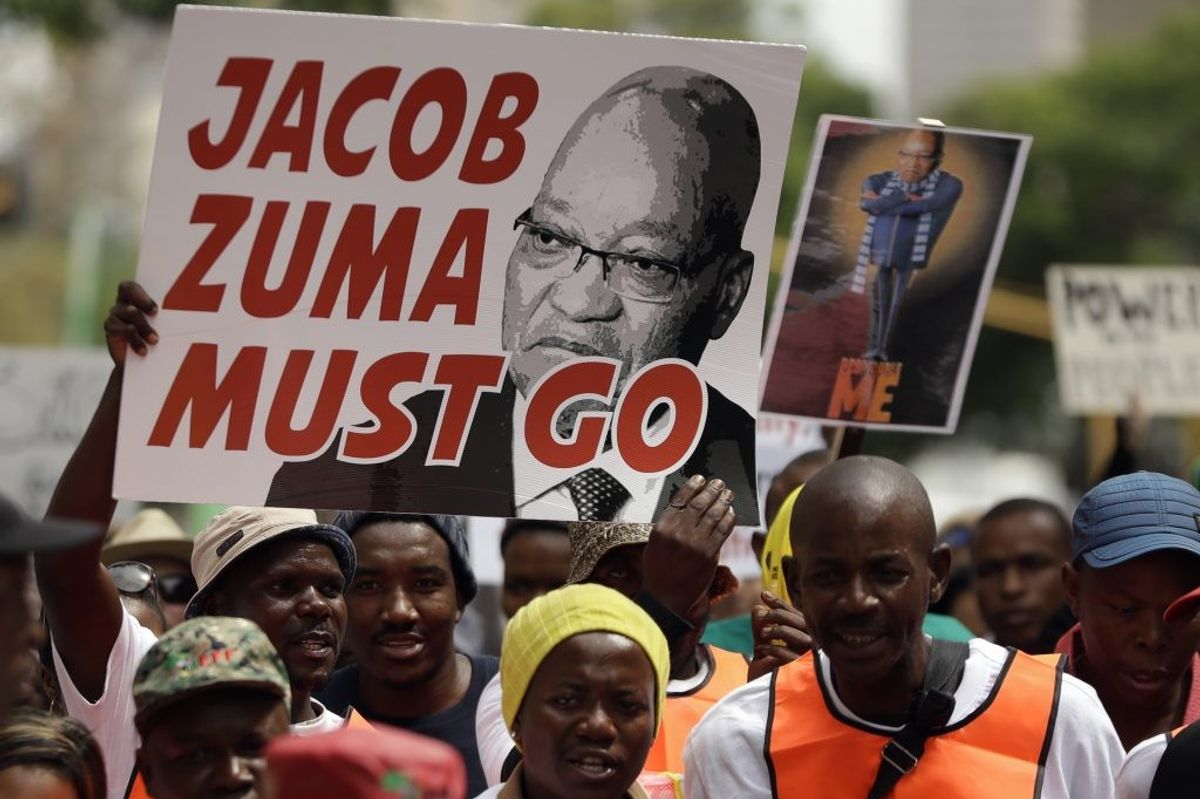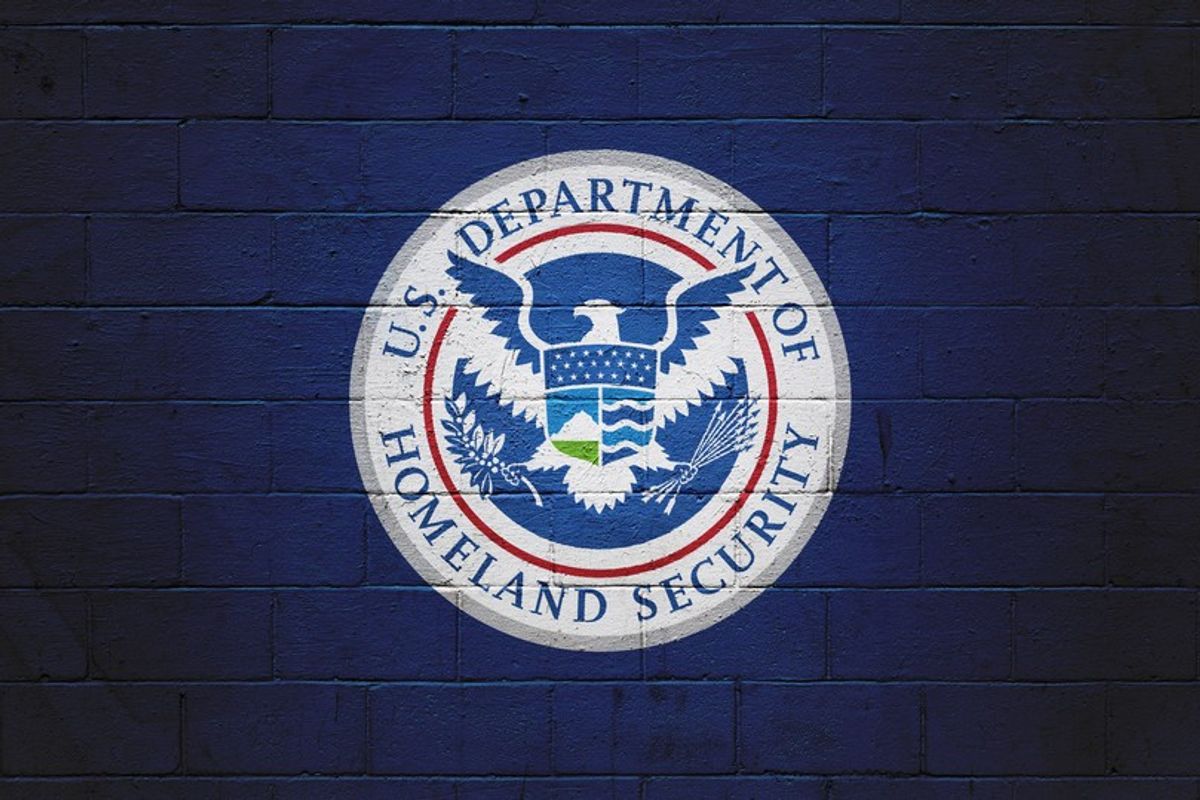Ambassador John Campbell served as a Foreign Service Officer in South Africa during the transition from apartheid to majority rule. He told The Cipher Brief that South Africa has undergone immense changes, but more needs to be done to reduce poverty which has led to a recent spike in crime in South Africa.
The Cipher Brief: You were working for the U.S. Department of State in Pretoria in the 1990s during South Africa’s transition from apartheid to majority rule. What has been the most profound change in South Africa since then?
John Campbell: The question requires answers at several levels. First, the entire population now participates in a democracy conducted according to the rule of law with among the most far-reaching guarantees of human rights in the world. That is new since 1994, when I was in South Africa. Second, the public face of South Africa – presenters on television, clerks in the shops, public officials – now reflects the population that lives there. Non-white South Africans are no longer strangers in their own country, even if the economy continues to be dominated by whites.
Third, and often overlooked, South Africa has had steady economic growth since the transition, even if that is not true now. A consequence is that the country is notably wealthier than it was when Nelson Mandela was inaugurated president. But, the gulf between white wealth (as opposed to salaries or wages) and the other racial groups is greater now than it was in 1994. Fourth, a small black middle class has emerged. That may encourage electoral behavior to move beyond racial identity toward policy issues.
TCB: Many experts agree that not enough has changed in South Africa since the end of the apartheid. What would you recommend prioritizing moving forward? How can law enforcement and the government tackle these problems, or does South Africa need greater institutional change?
JC: Basic to a host of social issues, including crime, is poverty. Poverty is driven by unemployment – as high as 50 percent among some black demographics. That, in turn, reflects a shortage of low-skilled jobs available to the unemployed. The prevalence of unemployed, low skilled workers reflects the shortcomings of “bantu education” under apartheid. But for many South Africans, especially in the rural areas, primary education is still very poor. Elite education exists, and South Africa has the best secondary schools and universities on the African continent. But they are largely available only to the elites. The issue is not money. South Africa spends up to 25 percent of its budget on education. Nor is it simply a matter of increasing black enrollments in elite institutions. There are pedagogical issues unresolved in South Africa and everywhere else. Should primary education be in the student’s native language? Or should it be in English, the native language of only nine percent of the population, but the language of international business? And so forth.
The unemployed also carry a heavy disease burden. In effect, South Africa has a two-tiered medical system: one that is as good as anywhere in the world, but is available only to the elite, and one that is available to everybody else. The National Development Plan has concrete strategies for addressing both education and health issues.
In the short term, it is essential to create more unskilled and low-skilled jobs to alleviate poverty. That, in turn requires a change in the government’s labor policy, and also a change on the part of the trade unions that are an important part of the African National Congress (ANC) coalition.
TCB: There has been a lot of controversy over South Africa’s failure to detain Sudanese President Omar al-Bashir and turn him over to the International Criminal Court (ICC). Now South Africa might withdraw from the ICC. What implications does this have for South Africa’s democratic institutions and South Africa’s involvement in international institutions?
JC: I do not think South Africa will withdraw from the ICC anytime soon. The Treaty of Rome is embedded in South African law, and I see no consensus in favor of repeal. Even if the ANC majority in parliament should vote for repeal, there would be the inevitable court challenges, doubtlessly up to the constitutional court. And the judiciary is independent.
The Zuma administration’s failure to arrest Bashir would appear to violate the South African court order and make it liable for contempt of court. It is uncertain what would transpire from this.
TCB: How has U.S.-South African relations changed since the end of the apartheid? What are U.S. strategic interests in South Africa?
JC: U.S. interests in South Africa are that it continues to be a stable democracy conducted according to the rule of law, and, as such, a beacon for the rest of Africa. Economic ties are important but not compelling. As both the United States and South Africa are non-racial democracies, ties should be especially close. While the bilateral relationship is cordial, there is no special relationship. In part that reflects a different focus of interest – for South Africa, the Global South, for the U.S., the burdens of being a world power.
There are less tangible factors as well. Especially among the leaders of the struggle, there is resentment as to what they perceive as a U.S. partnership with the apartheid regime. More broadly, there is concern about racism in the United States, especially in the aftermath of the police killing of blacks and the assault on a black church in Charleston, South Carolina by a white supremacist. On the U.S. side, there is concern about issues that range from South Africa’s appeasement of Zimbabwe to nuclear questions.
TCB: Looking forward, how can the U.S. and South Africa work together to combat threats to Sub-Saharan Africa or work toward accomplishing regional priorities?
JC: Both countries would benefit from closer consultation and greater sensitivity to the preoccupations of the other.










